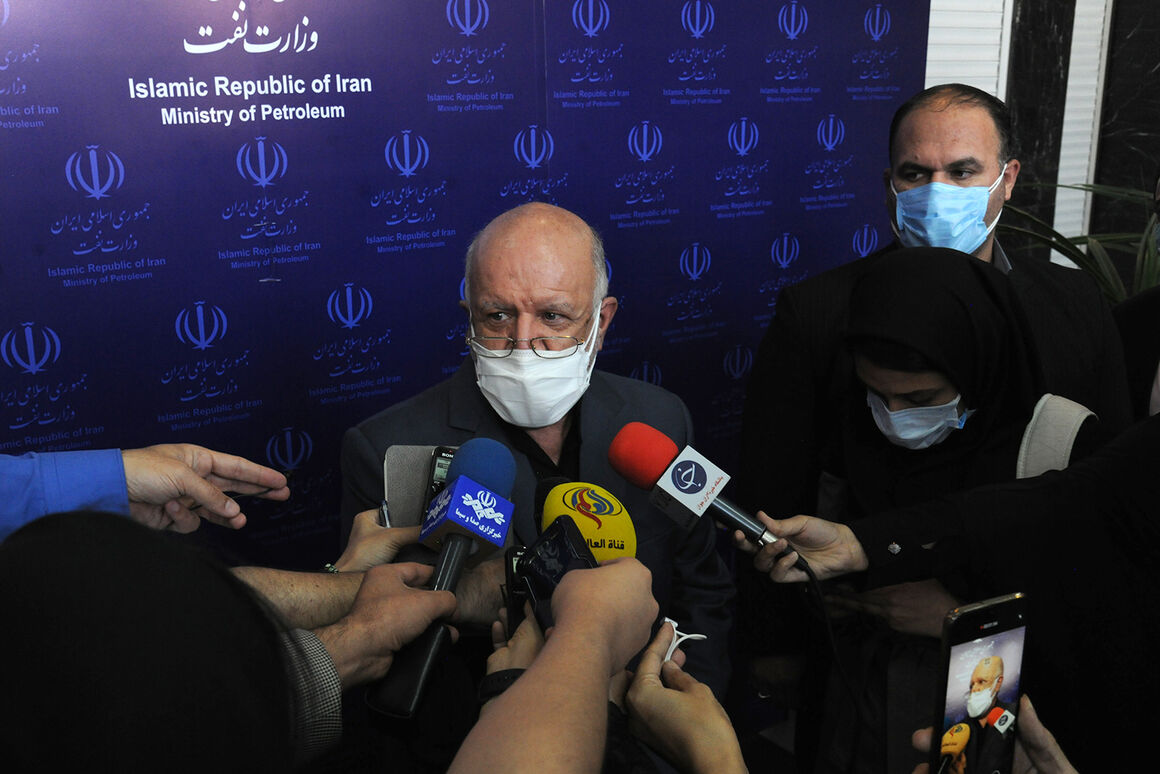Speaking to reporters on Monday morning, Mr. Zangeneh said the contract for developing the Azadegan oil field would be signed “with a group of domestic companies and soon."
In response to a question about why he did not wait until the end of the Vienna talks and the conclusion of the Farzad Field contract to be determined, he said: "This issue caused delays in the work. According to the signed contract, there is no problem for the presence of a foreign partner. Optionally, foreign companies can enter into this contract.”
Zangeneh further said he wouldn’t talk about Iran’s crude oil production and exports.
“I will stay in politics”
"If they offer the presidency, I will not accept it and I will retire from any government position, but I will stay in politics, because politics is like life and cannot be separated from it. But I will not have a government job or position,” he further said about his decision about staying in politics after the upcoming presidential elections in Iran.
Asked if he had any plans for the post-ministry, the Iranian Minister of Petroleum minister said: "After retirement, I will have to work 12 to 13 hours a day to make a living for my wife and children."
Zangeneh’s conversation with the reporters came after a ceremony was held here in Tehran to sign a 1.78 billion dollar contract between the National Iranian Oil Company (NIOC) and Petropars Group for developing Farzad B Gas Field.
In an address at the ceremony, the Iranian Minister of Petroleum said: “Today is an important day that the contract for this field is being signed. I have been looking for the contract for this gas field for a long time. I thank all my friends and colleagues in the National Iranian Oil Company, Pars Oil and Gas Company and Petropars for concluding this contract.”
He noted that the Indians were supposed to develop this field and take the gas after converting it into Liquefied Natural Gas (LNG), adding: "The gas condensate in Farzad Field is one-eighth of South Pars. In fact, there is no balance between receiving and paying, and it is very difficult to return the investment in this project."
Zangeneh stated: “The plan of the Indians was to turn the gas of Farzad field into LNG, but after the first round of sanctions, they withdrew from development of this field and returned again after the lifting of the embargoes. Personally, I spoke twice with the Indian Minister of Oil and Gas and officials to develop the field, but they refused to join the project. We accepted their conditions, including not producing LNG, but they still did not come due to sanctions and other issues.”
He said that a lot of time and money was spent to describe Farzad Field and various scenarios for the development of this field were examined so that NIOC could reduce its development costs, adding: "The cost of this project, despite the reduction, is now about $1.8 billion. The main question here is how this resource is to be provided, so that it can be repaid later. If we go for the sale of bonds, people buy the bonds in the form of one-year, two-year and a maximum of three-year terms, while the development plan of this field takes at least five years and after completion it takes several years to return the cost of the plan, so you see the financing of this project requires precise methods in financial management.”
The Minister of Petroleum, stating that about 30 scenarios had been studied for development of this field, said: "Finally, after studying different scenarios, it was decided to transfer the gas produced in this field to site 2 of South Pars to use the facilities in South Pars as it has a very high capacity to receive gas.”


Your Comment